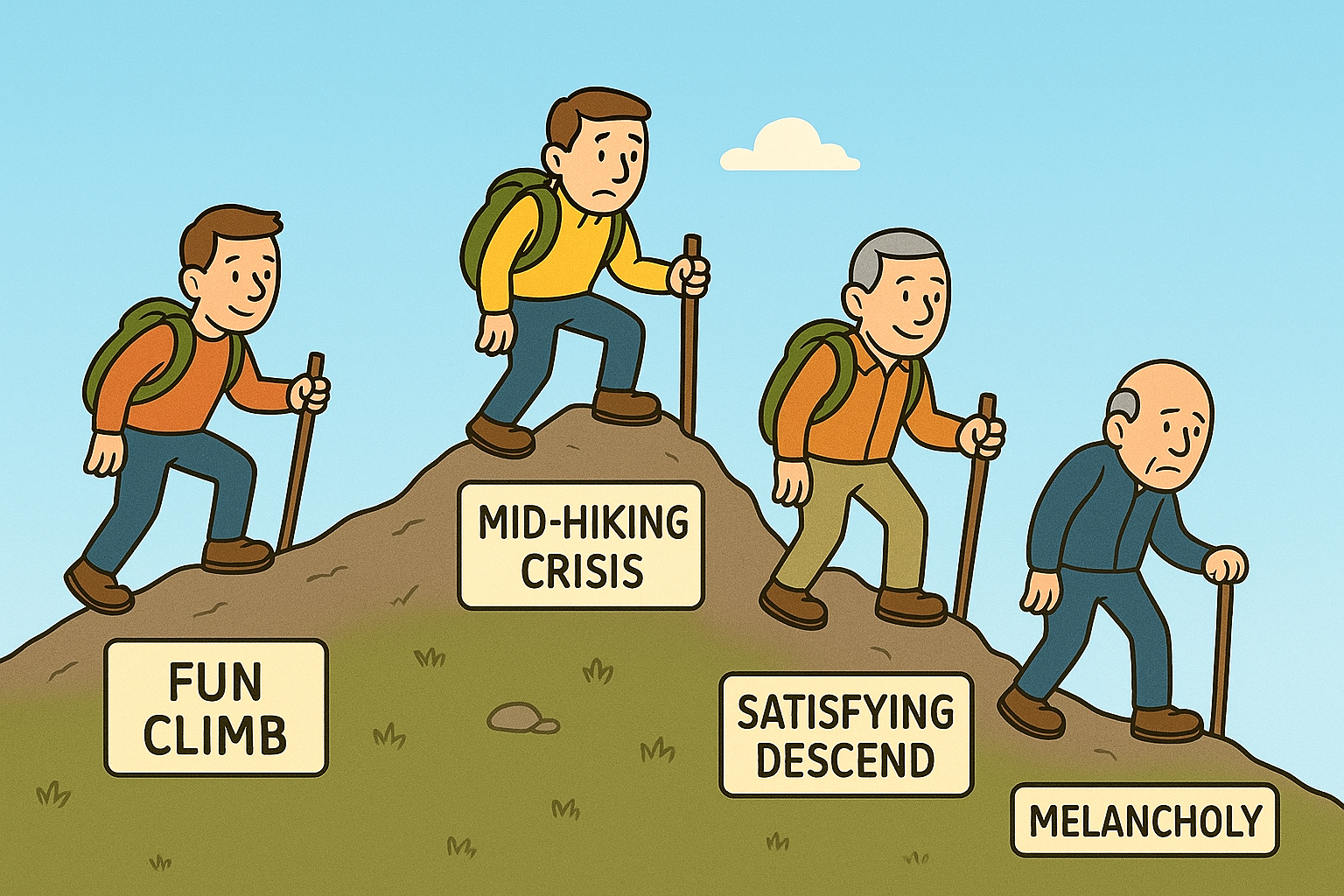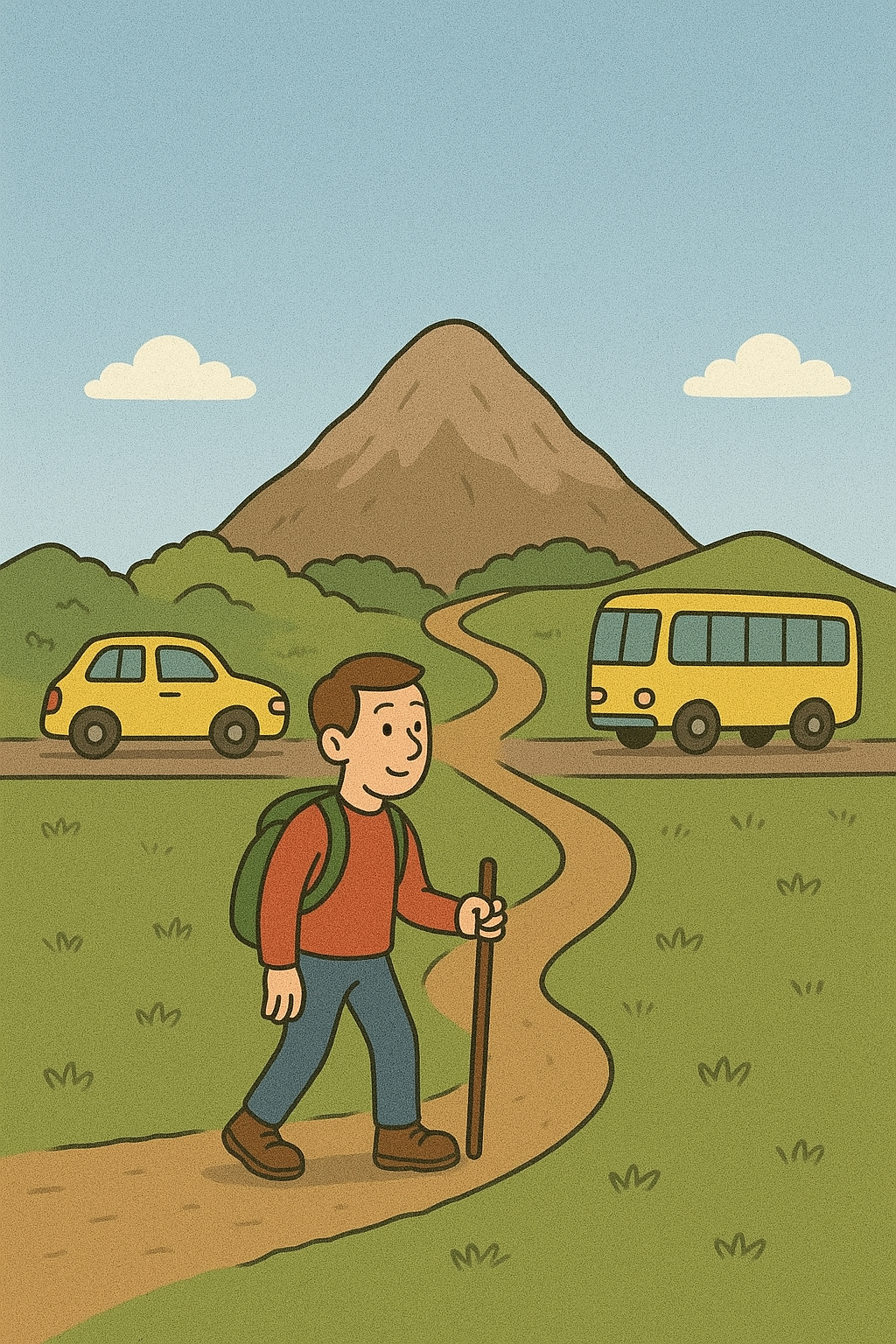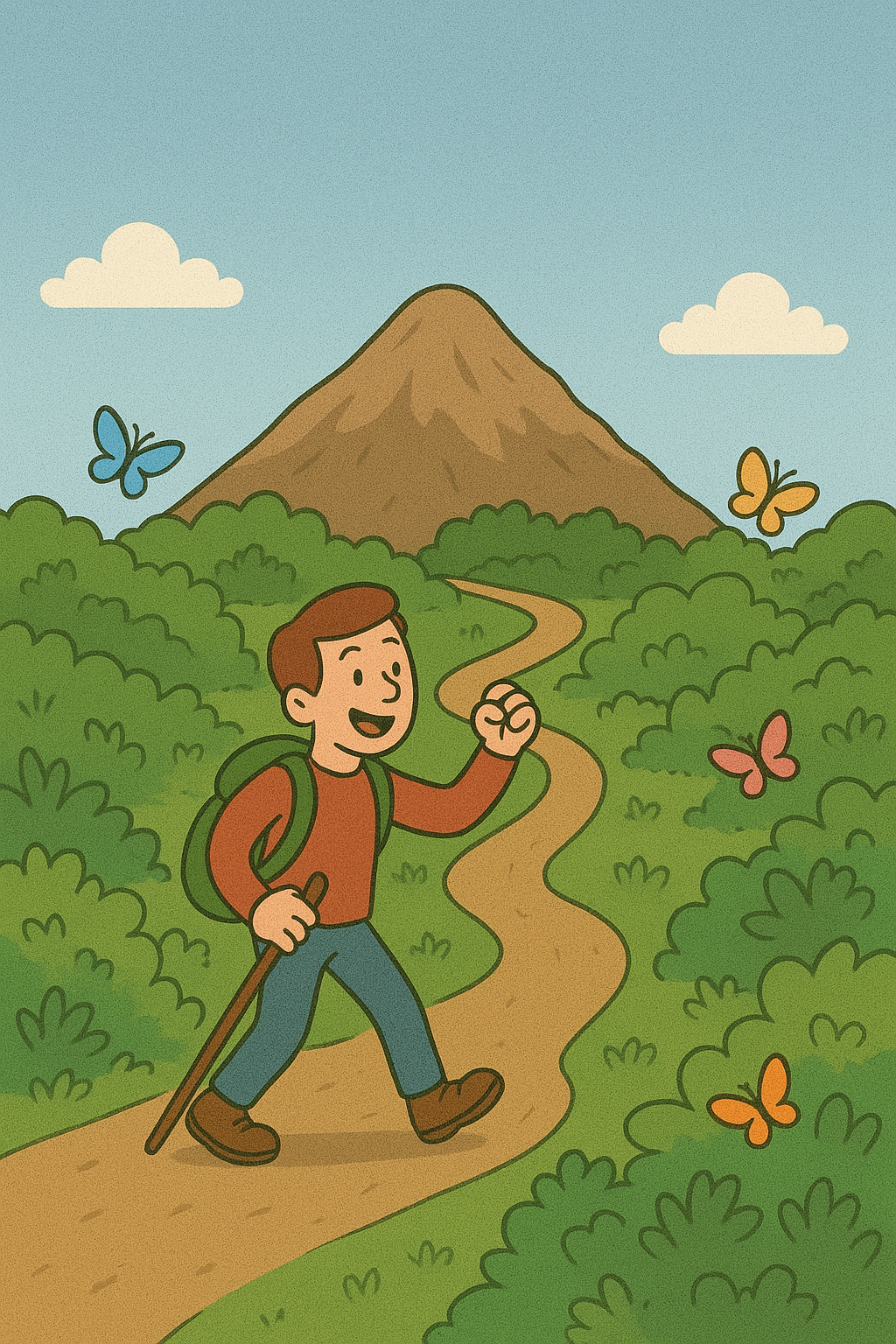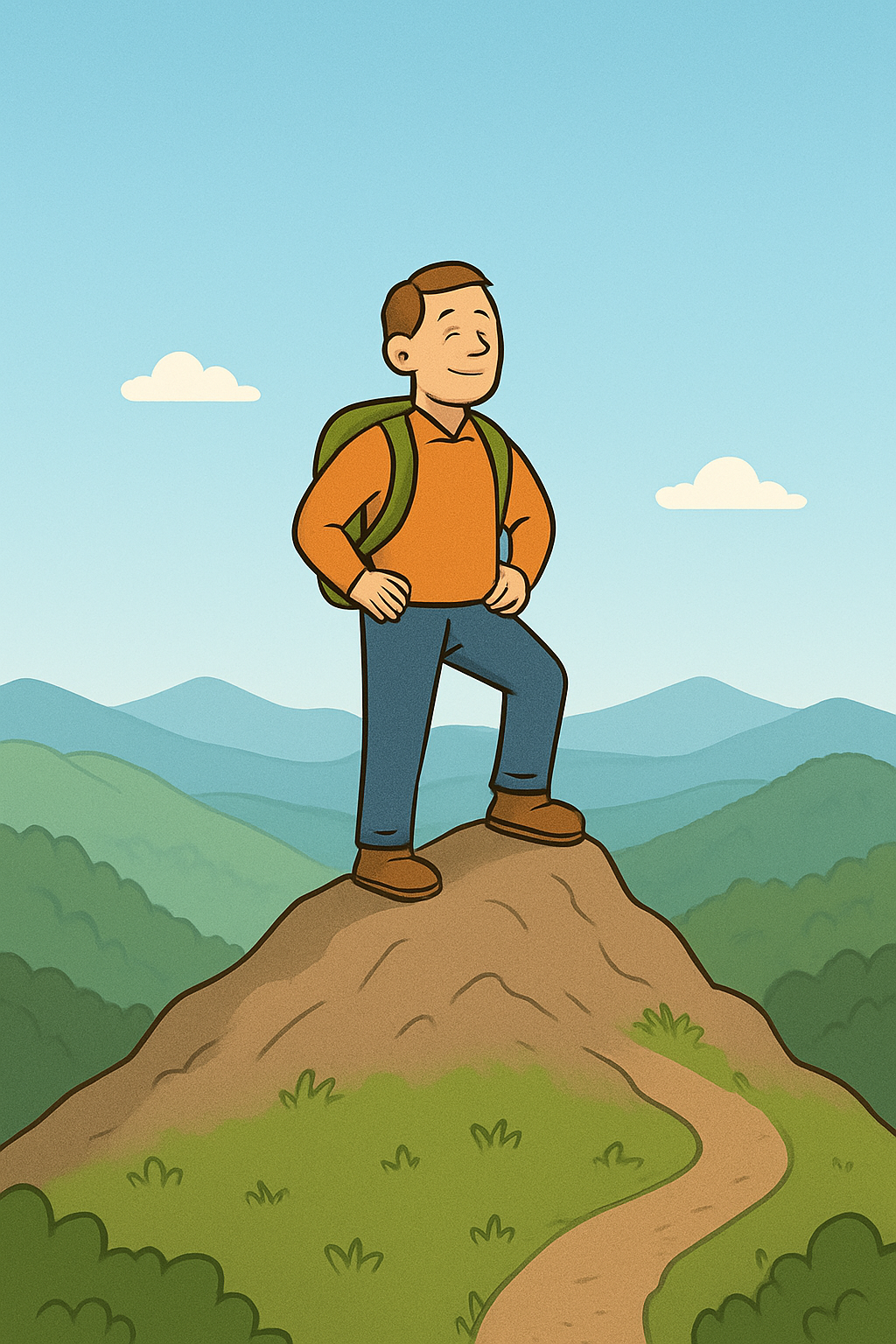My life theory: the mountain hike

Life is often sliced into stages with labels like "mid-life crisis," "the sandwich generation," or "emerging adulthood." Each tries to define a phase, yet juggling these categories and preparing for each feels overwhelming and fragmented. Society hands us simple slogans—"Your 20s are for fun," "Your 30s build independence," "Life begins at 40"—but instead of clarity, they often create more confusion, leaving us unsure how to navigate what’s coming next. This attempts to put complex, nonlinear life into neat boxes, but life resists simplification. Understanding this is the first step to a more grounded view of growth and timing.
The common advice to “just enjoy the moment” never sat well with me. Life’s elements—fun, struggle, growth—aren’t evenly spread over time, so applying the same mindset to every phase feels naive and, frankly, irresponsible. At 31, I’ve come to see life differently through what I call the "Mountain Hike Theory." Life, like a hike, involves tough uphill climbs, gentler slopes, and breathtaking peaks—each stage serving a unique purpose. This metaphor brings perspective, helping me navigate with intention rather than confusion. It’s been a clarifying framework, and I want to invite you to join me on this journey—let’s start the hike.
The Starting Point: Does How We Arrive Matter?
When a hike begins, someone else usually gets you there—friends, family, or public transport. Early life feels much the same: we grow under circumstances shaped largely by others—parents, society, structures beyond our control. At this stage, do the conditions really matter? In hiking terms, is it crucial if you showed up in a luxury car or a crowded bus? Do the most expensive shoes guarantee a better experience? Sure, these things influence comfort, but they don’t define the value or insights you’ll gain from the journey ahead. What shapes your path goes beyond the gear or the ride; it’s in how you move forward from where you start.

The Fun Climb
At last, freedom. You’ve left behind the familiar—the family, the schoolmates who guided you to this trailhead—and now you’re exploring new terrain, uncharted but full of promises. It’s not complete freedom, of course; society’s path is pre-marked—what to study, where to work, what a “worthy” life looks like. But at this moment, screw that—freedom feels real, and that’s what counts. Does it matter if your chosen path isn’t the fastest route to the summit? Is hiking about speed, or about savoring the views?
This is the time to experiment—dating, dropping out, learning on your own terms, spending money on experiences instead of mortgages and cars. Yes, some choices will seem reckless later, and not every detour reveals a stunning vista. Still, this chaotic, messy phase is crucial. It’s the “Fun Climb”—a necessary scramble that shapes who you’ll become.

Mid-Journey: Things on the Peak
This stage is one I’m just beginning to enter, so my thoughts are more hopes than hindsight. Despite my usual skepticism toward clichés, this feels like the moment to embrace "enjoying the moment"—for two reasons. First, you’re literally at the peak, seeing the vast, scenic views. In life, this means reflecting on the daring choices and freedoms explored in your twenties, armed now with the wisdom gained. You might feel more ready for what’s next, though the path ahead remains uncertain.
Second, after a long climb with half the journey still to go, energy wanes. Instead of letting worries about uncontrollable things weigh us down, it’s smarter to focus on the beauty in front of us. Societal pressures—family, career status—can lure us away from boldness, but a grounded “enjoy the moment” attitude can ease the so-called mid-life crisis. It’s likely unavoidable, but more manageable this way. And remember: even though half the hike remains, it’s mostly a slope now—whether that’s easier or simply different is yet to be seen.

The Rest of the Trail
Beyond this point, the path is uncertain, stretching beyond my current understanding and expectations. Honestly, I don’t know how well this theory will hold against the reality of what’s ahead. I plan to revisit it in 10 to 15 years—to see where I got it right, and where I was way off.
For now, though, this framework provides a foothold, a way to navigate life’s stages with more clarity and intention. Sometimes, having that is enough.